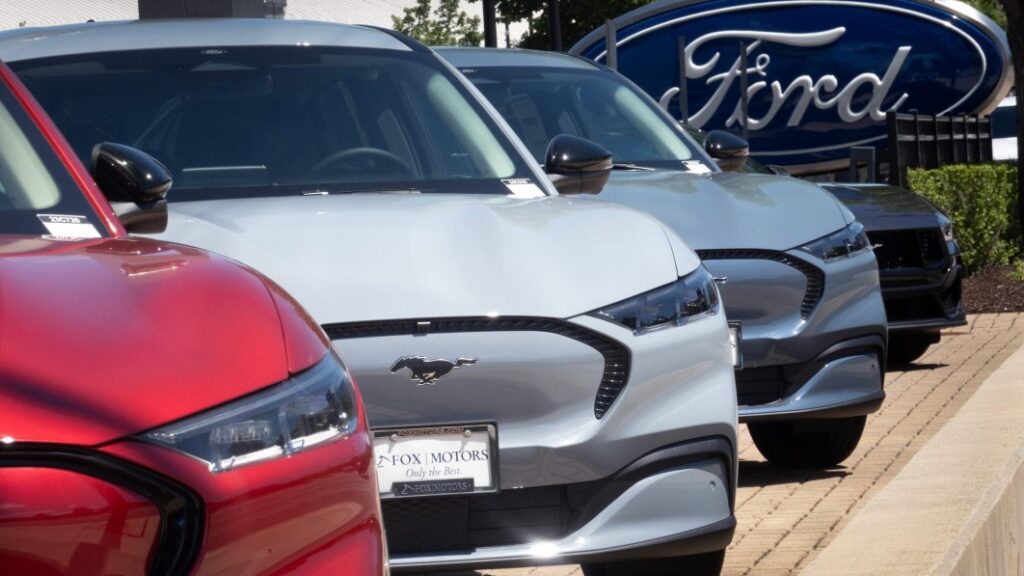Ford will no longer require dealers to invest $500,000+ just to sell EVs

Only about half of Ford’s roughly 3,000 dealerships had signed on to Ford’s expensive EV certification program. Scott Olson/Getty Images
Ford is ending a controversial program that required dealers to invest between $500,000 and $1 million to sell EVs.
EV sales are now open to all Ford dealers without certification requirements.
The change comes after Ford over-estimated EV sales growth.
Ford dealers no longer need to invest up to $1 million in order to sell electric vehicles.
The Blue Oval is ending its controversial EV dealership program less than two years after it was first announced, Ford Chief Operating Officer Marin Gjaja told reporters Thursday, according to CNBC.
Ford dealers will no longer be required to invest in certification to get EVs on their lot, opening battery-electric sales to Ford’s entire dealership network — a move Gjaja said is designed to grow Ford’s EV sales.
The program, first announced in September 2022, asked dealers to spend between $500,000 and $1.2 million to become “EV Certified.” The steep price included expensive DC fast-chargers for dealer lots to double as charging locations and EV training for staff.
This rigorous buy-in program was built on optimistic EV sales forecasts that dealers would make back their investments as electric-car popularity increased. But a lot has changed in the US EV market since the fall of 2022, and growth in the segment hasn’t played out as Ford initially expected, Gjaja said.
EV sales have slowed down in the past year. They are still on the rise but at a slower rate than the boom in growth that happened between 2020 and 2022. With wealthy early adopters largely sated, car companies are now trying to entice a new group of EV shoppers who are more frugal and practical.
Ford dealers were among the first to raise alarm bells about this slowdown when some stores started turning down Mustang Mach-E allocations last summer. Later, dealers started reporting issues with F-150 Lightning demand — further eroding Ford’s relationship with its dealers.
Since then, Ford and other major automakers have gone back to the drawing board on their EV strategies.
Even before this slowdown in EV sales, many Ford dealers were unhappy with the high price of entry for selling electric cars. Several dealer associations filed lawsuits related to the program. In one case, an Illinois board ruled in favor of the dealers’ claim that Ford’s EV certification program violated state laws.
As of December of last year, a little more than half of Ford’s nearly 3,000 US dealers had opted out of the EV investment requirements, an early sign that the program had backfired.
Ford’s dealers will still need to make some investments to support EV sales on their lots, but they will no longer be held to the minimum $500,000 investment.



